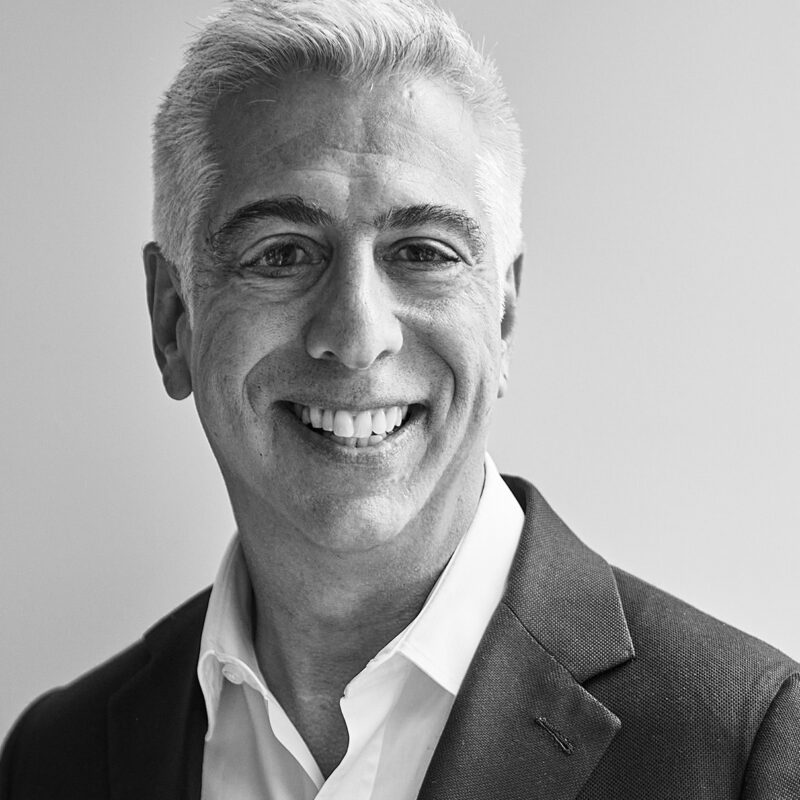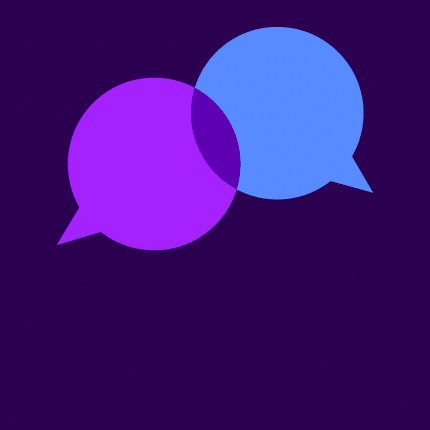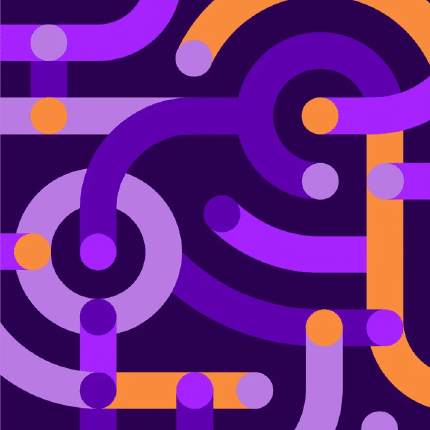Just as every person has a core essence that shapes who they are, every brand has a driving force that defines its unique identity. Yet, identifying and expressing that identity in a way that feels authentic—and resonates with the people who matter most to the business—can be one of the biggest challenges a brand faces. For B2B companies, this task is even more complex, as they navigate nuanced markets and build trust with discerning audiences.
To help our clients uncover their authentic identities and develop stronger brand strategies, we often draw on the archetypes defined by renowned psychologist Carl Jung. These archetypes offer a powerful framework for aligning a brand’s essence with leadership’s goals, as we explored while partnering with a professional services firm striving to differentiate itself in a crowded field.
Jung’s Archetypes in Action
While conducting research for our branding project with ICF, a global consulting firm, we did a lot of “typical” research: in-depth interviews with senior leaders in the organization, conversations with current and prospective clients, and an online, all-employee survey. We were getting a lot of good material—insight into the company culture, perspectives on ICF’s strengths and weaknesses, feedback on the ICF name. But we needed more to reach that “Aha” moment of clarity about where the brand should go next.
Interviews and surveys are fairly typical inputs. We ask straightforward questions, and we get straightforward answers. To unearth more interesting insights, to get people to think differently, and to get at the heart of the organization and what makes it unique, you have to shake things up a bit. That’s where Carl Jung comes in.
We use Jung’s archetypes as part of our brand workshops to explore the notion of what role brands should play for clients. (We even published a 3-part series about them.) Archetypes, according to Jung, are the universal characters that reside within our collective unconsciousness. We all recognize these characters and their associations without even thinking about them.
At workshops with ICF, we asked participants about nine of Jung’s twelve archetypes (leaving out the Jester, Lover and Everyman, as these rarely apply to B2B brands). Was ICF the Caregiver, helping clients to care for others? Or the Creator, helping clients make something of enduring value? Or was it the Sage, helping clients discover truth and understand their world?
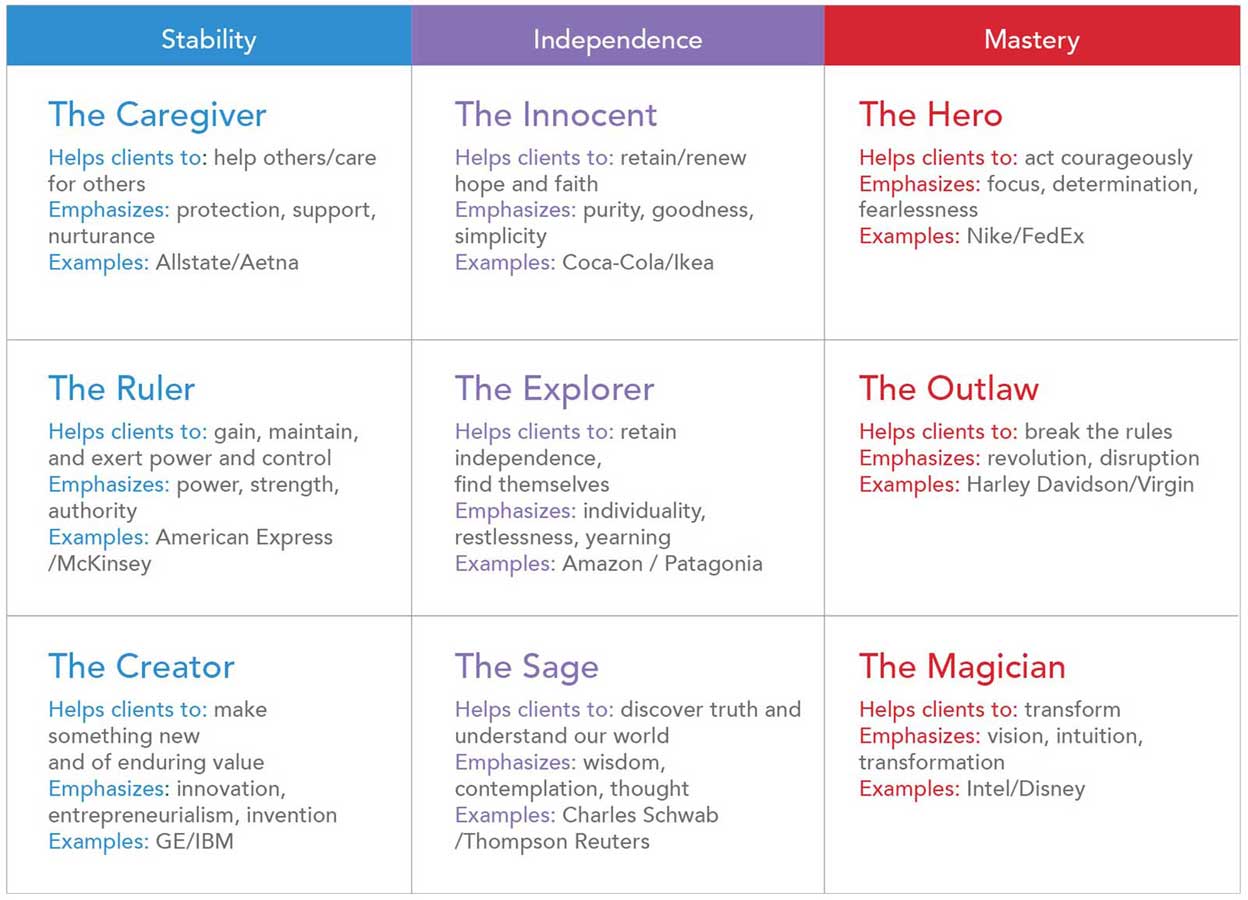
Subscribe to Our Newsletter
Most workshop participants unsurprisingly coalesced around the Sage and the Creator, casting their votes by placing green stickers on the poster for each archetypes. In the discussion that followed, those who’d voted for these archetypes spoke of ICF’s deep expertise relative to complex issues, and its ability to help clients solve problems through creative approaches.
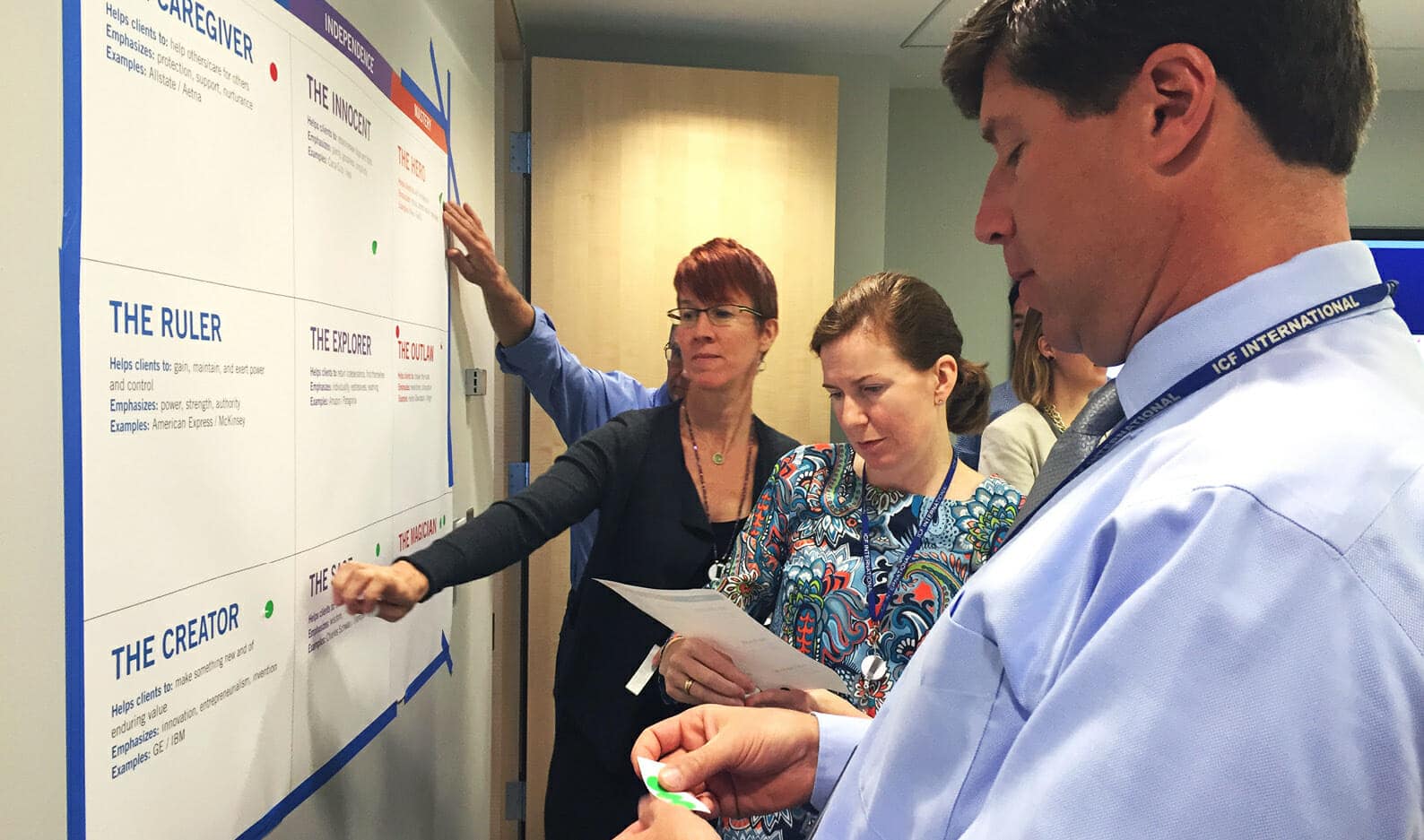
There were, however, a few green dots placed squarely on the Hero, the archetype that emphasizes determination and fearlessness. When probed, one of the Hero voters made his case: “We do whatever it takes to help our clients succeed. We’re not the hero, but we help our clients be the hero. We’re not setting their course, but we’re helping them achieve their goals. We’re not Edmund Hillary at the top of Mount Everest, but we are the Sherpa who got him there.”
And there it was. The “Aha” moment. No, rays of light did not start streaming in, and the brand didn’t become “We’re Tenzing Norgay” (the skilled Sherpa who helped Edmund Hillary summit Everest). But it was this insightful comment that—when combined with all we had learned from our interviews and surveys—crystallized our thinking about what makes ICF truly unique.
The ICF brand is about helping its clients achieving their highest aspirations. The work they do is hugely transformative, and in contrast to their competitors (pure strategy firms), ICF actually gets things done. The new brand, its essence summarized in the line, “We make big things possible,” has the helpful—and essential—sherpa at its core. If you want to get to the top of a mountain, ICF will get you there.
Want to discuss how Jung’s archetypes can help you build a brand that differentiates you authentically? Contact us.
Originally published June 27, 2020.
